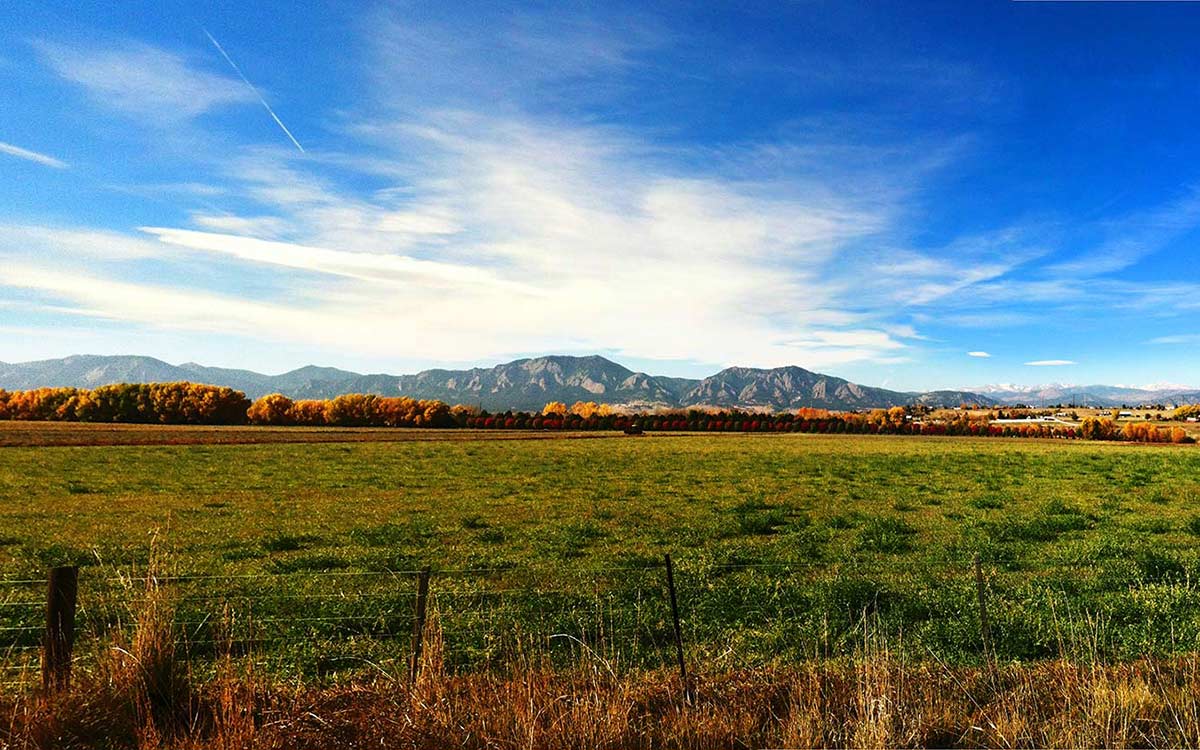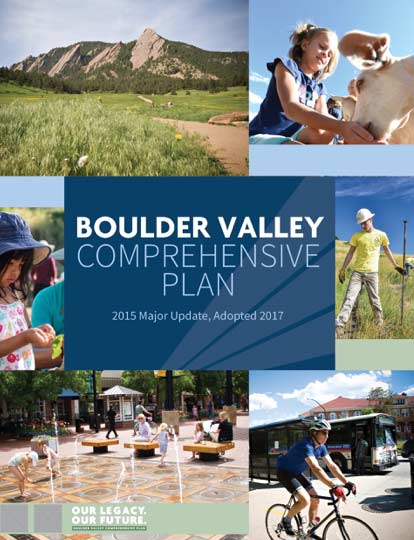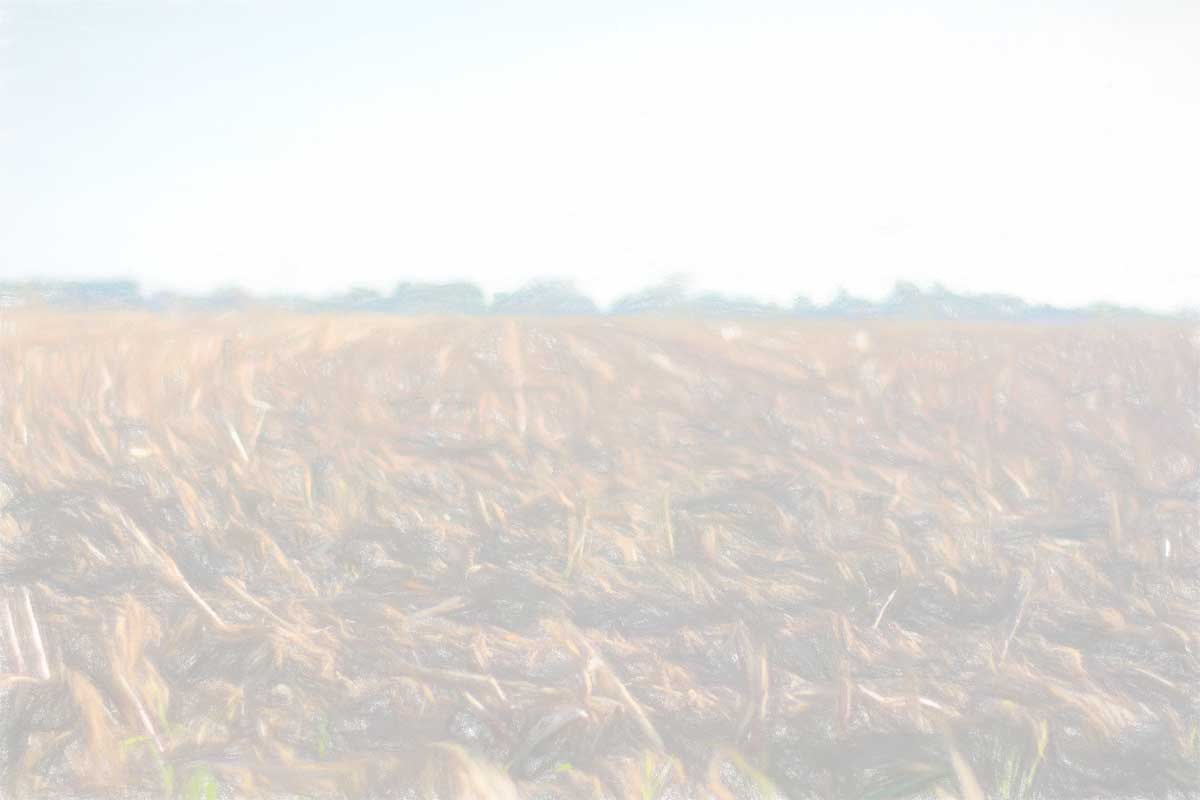

LAND USE
THE VISION
The Boulder Valley community honors its history and legacy of planning for a livable community surrounded by open space and rural lands while striving together to create and preserve a truly special place that is sustainable, resilient, equitable and inclusive – now and for future generations.
A few focus areas include ...


Housing Affordability & Diversity
While costs have increased in Boulder, incomes have been stagnant and little vacant land is left. This plan adds 20 new housing policies to address goals for affordable housing (including middle incomes), increasing housing type diversity in commercial and industrial areas, and achieving more community benefits as height or intensity changes are granted.

Growth—Balance of Future Jobs & Housing
The community has long been a regional jobs center contributing to high rates of in commuting and housing affordability challenges. Thus, the plan supports increased housing and reduced nonresidential in infill development and contains policies in support of regional housing and transportation solutions.

Arts & Culture
Adding a bit of fun (and culture and economic vitality), Boulder’s Community Cultural Plan led to the introduction of new policies especially in the Economy and Community Well-Being chapters. Arts and culture are an important community benefit.

Resilience & Climate Commitment
Boulder was an early starter to tax itself on carbon and take aggressive and innovative action on climate. It continues to do so. The 2013 flood reminded everyone about hazards and uncertainties and the need to be prepared. Resilience is now part of the plan’s vision, and new policies throughout address it (e.g., local energy generation, emergency response, soil carbon sequestration, adaptive management, and self-sufficient neighborhoods and communication).

Did You Know?
A “Mid-term Update” will launch in 2020 to address objectives identified in the last update and our review progress made since. It’s not the time to consider major policy changes, though it is an opportunity for the community to weigh in on:
• Changes to the land use map, which provides a generalized picture of desired future uses in the Boulder Valley and is the basis for city zoning districts
• Changes to the area I, II and III maps (i.e. areas eligible for annexation into the city – where the city can grow)
• Minor policy changes

BOULDER VALLEY COMPREHENSIVE PLAN,
CLIMATE AND LAND USE
The Boulder Valley Comprehensive Plan (BVCP) articulates policies that guide important community decisions about a number of issues including growth, development, environmental protection, neighborhood character and transportation.
The BVCP acknowledges that a compact city form and transportation options support climate stabilization and identifies a number of strategies and goals:
• Reduce vehicle miles traveled
• Create a built environment and mix of land uses that reduce the need for people to drive
• Policies and regulations governing placement and orientation of land uses to minimize energy use, including an increase in mixed-use development and compact, contiguous development.
BVCP CORE VALUES
Environmental stewardship and climate action
Compact, contiguous development and infill that supports evolution to a more sustainable urban form
An all-mode transportation system to make getting around without a car easy and accessible to everyone
HOW IT FITS TOGETHER


MOVING FORWARD
The city’s goal is to evolve toward an urban form that supports sustainability.
To do this, the city will encourage:
• A compact development pattern with density in locations to support a variety of housing types, viable commercial opportunities, and high frequency public transit.
• Well-designed mixed use and higher-density development in appropriate locations, including in some commercial centers and industrial areas and in proximity to multimodal corridors and transit centers.
• The creation of incentives and the removal of regulatory barriers to encourage mixed-use development where and when appropriate.
• A variety of regional and neighborhood centers where people congregate for a variety of activities.
• An integrated multimodal transportation system with affordable, accessible, and pleasant ways to get around on foot, by bike, and by local and regional transit service.
Urban form where daily needs can be met within easy access from home, work, school, services or recreation without driving a car.
•Buildings, streets, utilities, and other infrastructure that protect natural systems, minimize environmental impacts, and support clean energy generation.
•Preservation of agriculturally significant lands, environmentally sensitive areas, and historic resources that integrate into the urban fabric.